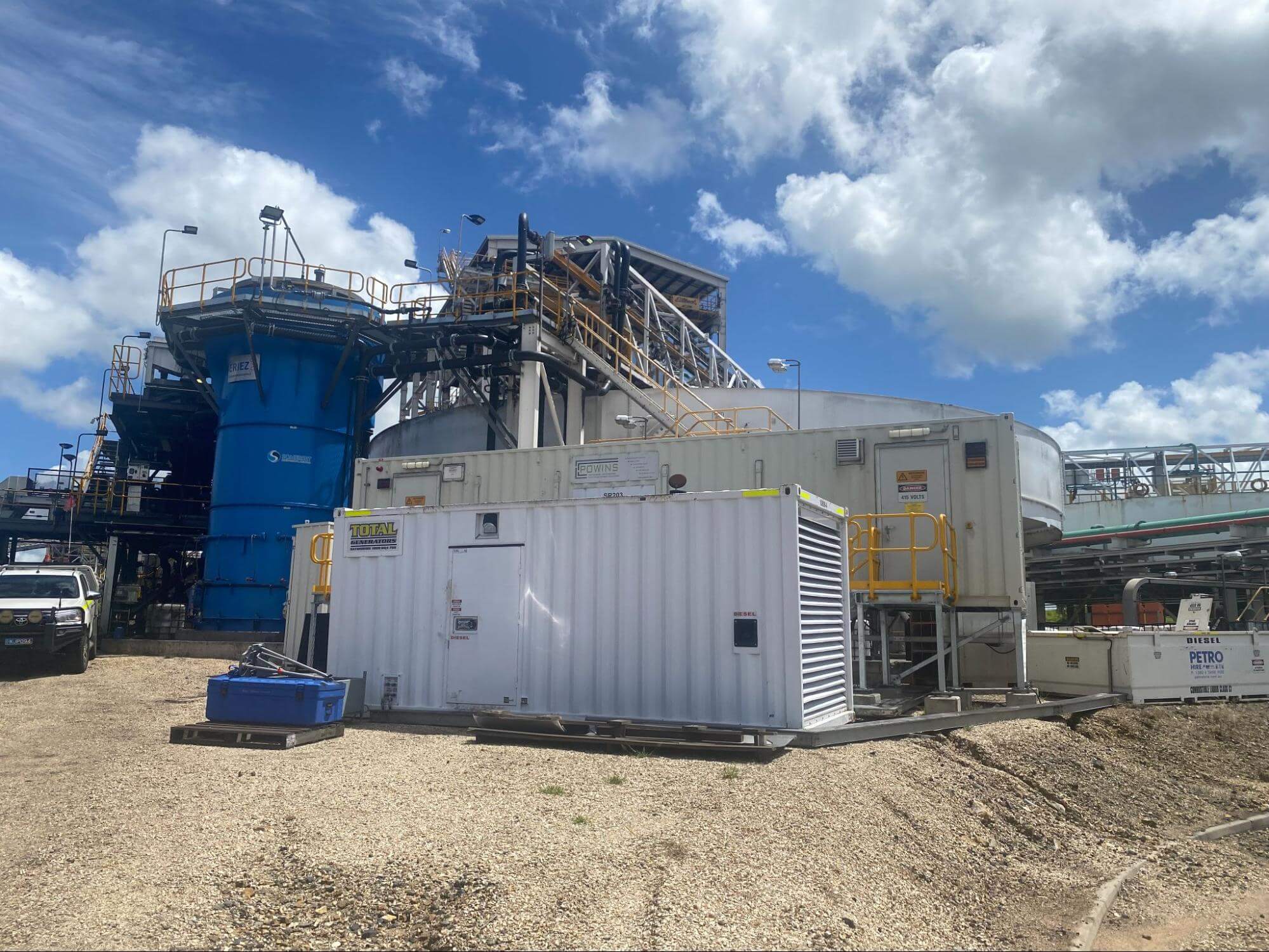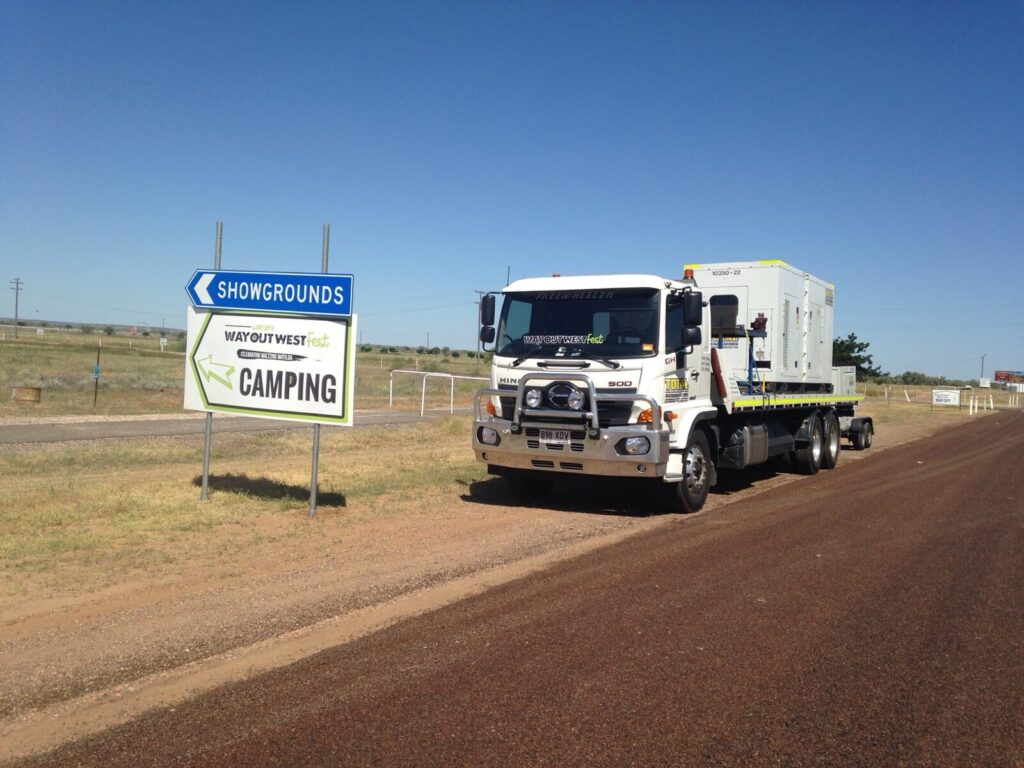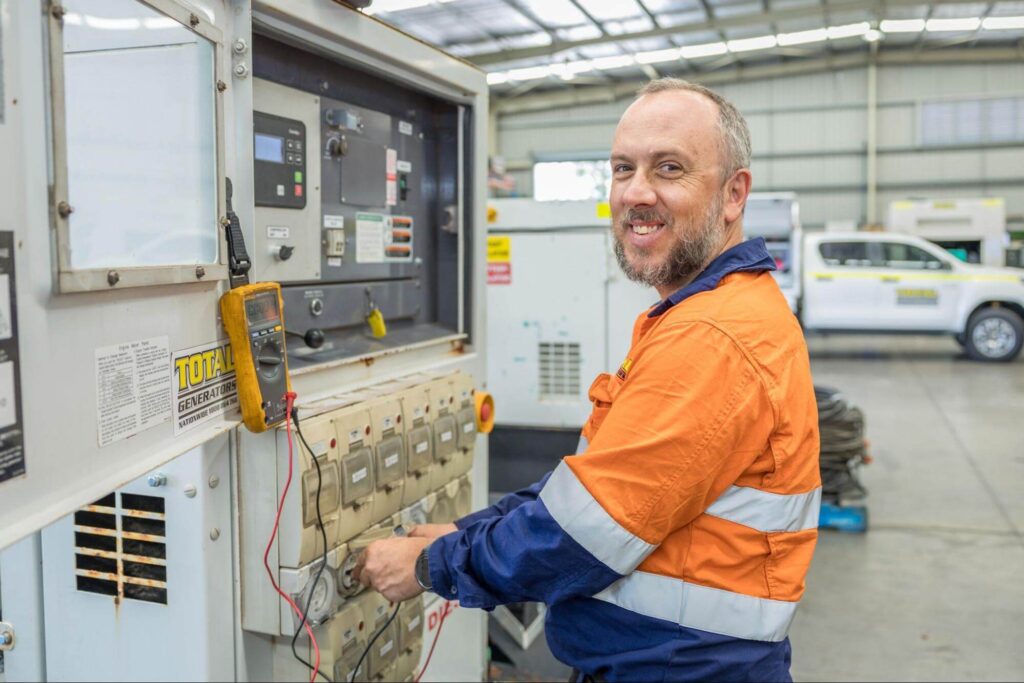
How Regular Generator Maintenance Can Improve Generator Durability in Rural Areas
Even in Australia’s most rural and remote locations, access to electricity is essential for operations like farming, mining and construction. Yet the outback and rural areas pose several challenges that can potentially cause long-term damage to generators, including dust, storms, heat, lack of access to fuel and distance from available support. It’s important not to neglect generator maintenance in these often-isolated locations.
Businesses need a reliable energy source. In rural and remote locations, where access to the main power grid may be limited, generators are the most effective way to achieve power. Regular generator maintenance enhances both their lifespans and their efficiency.
With more than 25 years of powering Australian industries, Total Generators has more knowledge than most about maintaining a generator. If you’re wondering how to keep your generator running in optimal condition in rural Australia and which maintenance measures can help, we’re here to assist you.
Why Generator Maintenance is Important in Rural Australia
In Australia, electricity is seen as an essential and something many of us take for granted. Yet, it’s not something everyone has equal access to. According to recent research, remote and Indigenous communities have more vulnerable power connections compared to the regional and urban populations. One in five residents in this country lacks equal access to household electricity protections. Approximately two per cent of the Australian population live in remote areas where they have to supply and maintain their own electricity, and more than 100,000 Indigenous people live in communities where diesel generators are required for energy production.
In locations that rely on generators, a generator breakdown can lead to the loss of essential services. Extreme weather conditions, like high temperatures, dust storms and heavy rain, put increased pressure on generators and increase the likelihood of breakdowns and malfunctions.
In addition, those in regional and remote locations may find it more difficult to access support due to distance. While malfunctioning generators can cause potential hazards such as fires, emergency services are a lot farther away than in the cities.
Generator maintenance is important regardless of location. But if your generator is continually exposed to excess heat, dust and moisture—as generators in rural areas frequently are—you may have to give it more attention.
Important Maintenance to Conduct

If you have an emergency generator at home, you’re no doubt familiar with the maintenance measures you need to undertake regularly to keep it running. Commercial generator maintenance is even more important, as the loss of commercial power can lead to a loss of essential services. Some of the most important maintenance tasks to perform on a commercial or industrial generator include the following:
Changing serviceable parts
It’s crucial to regularly check and, if necessary, change all the small parts that go into the running of your generator, including filters (air, fuel and oil) and spark plugs.
Checking and replacing fuel
Diesel fuel can last up to 12 months in a generator, but that timeframe varies based on factors like temperature, humidity (both higher in rural Australia) and fuel quality. Make sure to regularly check and replace the fuel in your generator to prevent clogged filters or, worse, engine failure.
Changing oil
While the lifespan of engine oil depends on your generator’s quality and usage, experts recommend you check it every eight to 16 hours and change it every 50 to 100. Dirty oil can interfere with the performance of your generator, increasing the risk of a breakdown.
Inspect and clean the cooling system
Regularly inspect the cooling levels of your generator to make sure they’re within range, and look for any leaks or blockages, too. This helps you avoid overheating the generator.
Replace the air filters
Air filters prevent debris inside the generator from building up and restricting the flow of air to the engine. That’s why it’s important to regularly inspect and replace them.
Check for battery corrosion
Batteries are among the most common causes of generator issues, as the connections can grow loose and the terminals corrode over time. Every month, inspect your generator’s batteries, tightening any loose connections. If you notice corrosion, replacing them is your best option.
Inspect the belts and hoses
Damaged, torn or frayed belts and hoses inside your generator increase the likelihood of a breakdown.
Check your generator’s exterior
The inside of your generator isn’t the only part you should scrutinise. Every now and then, take a walk around your generator and inspect the outside for damage. If you don’t have a cover for your generator, make sure the area surrounding it is completely clear.
How often you run through these generator maintenance measures depends on a number of factors, including the age and quality of your generator. But in an environment as rough and rugged as the Australian outback, the last thing you want to do is neglect them.
The Benefits of Emergency Support in Rural Australia
Considering how many people in rural Australia rely on generators for power, there are several advantages to providing emergency support for generators in these locations. These include:
Minimal downtime
If a generator fails or malfunctions, reducing downtime is critical in order to minimise the impact on homes, businesses and essential services.
Peace of mind
Access to emergency support in your remote location gives you the reassurance that you will be able to operate your generator when you need it most. In case of emergency, generator support services have the knowledge to quickly identify and fix the issue.
Assurance of safety
Malfunctioning generators have the potential to cause fires, electrical shocks and other accidents. In remote areas, losing access to essential services due to a power outage can endanger people’s lives. When you feel secure that help is at hand, it’s easier to feel safe.
Long-term health of your generator
Regular generator maintenance and inspections help to keep your generator in the best condition possible, extending its lifespan and making sure it’s always ready for you to use.
Hire a Generator from Total Generators

Total Generators provides comprehensive servicing of generators, transformers and other power-related equipment. This includes our generators for hire nationwide, including regional, rural and remote locations.
We provide a 60-point service/maintenance checklist with every generator for hire, as well as a scheduled service that includes a complete oil change, battery charge test, comprehensive electrical and fuel inspection and more. Once your power is connected, we’ll monitor your fuel consumption and formulate a diesel fuel management system that works for you. Our generator maintenance is included when you hire one of our generators, no matter how remote or rural your area is.
The Total Generators equipment compliance standards have been developed in conjunction with our Global Client Partners to exceed the Australian Electrical Standard. We’re the supplier of choice for a large number of construction companies, mining professionals, event organisers, film production companies, shipping and commercial activities and more. Rather than turn-key solutions, we design specific solutions so that you can achieve consistent performance and reliable power output 24 hours a day.
Do you have a project in a rural or remote location and believe you could benefit from our services, including generator maintenance? Get in touch with the Total Generators team for a free quote.


